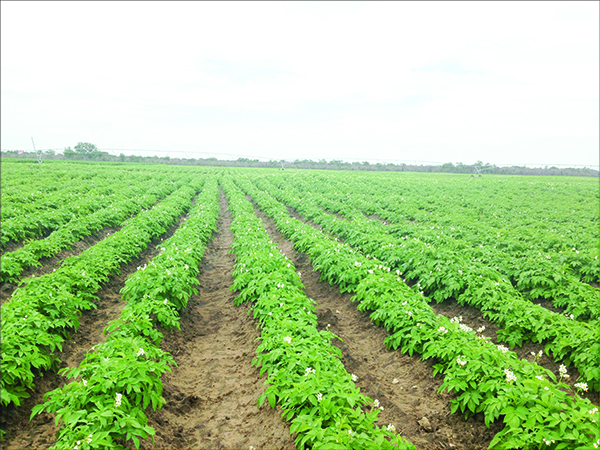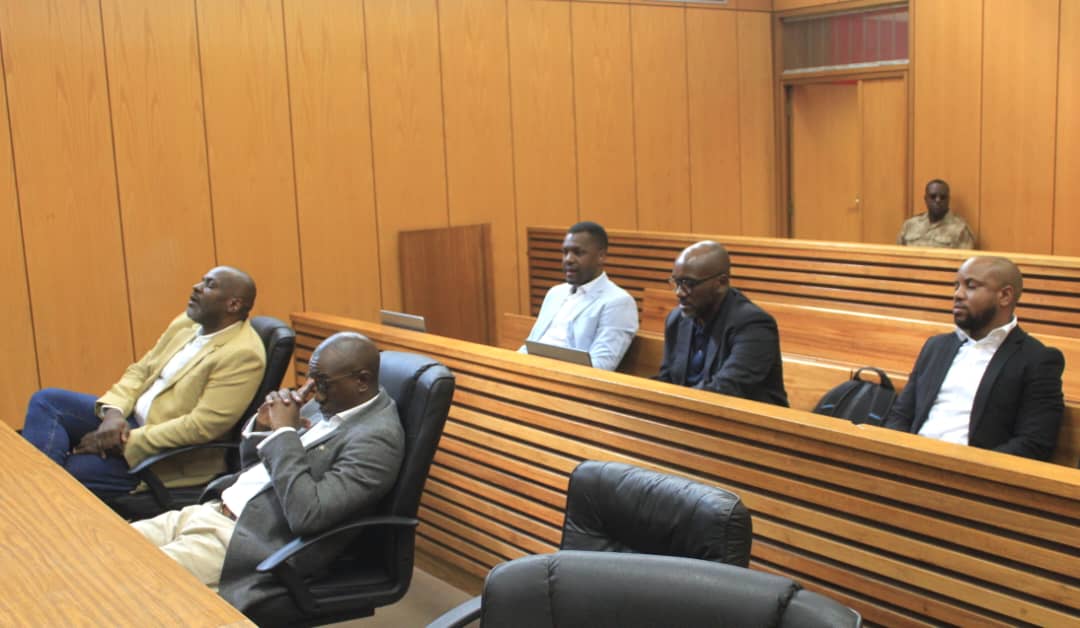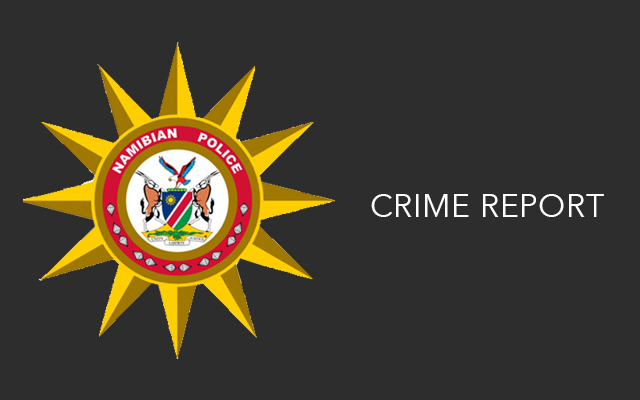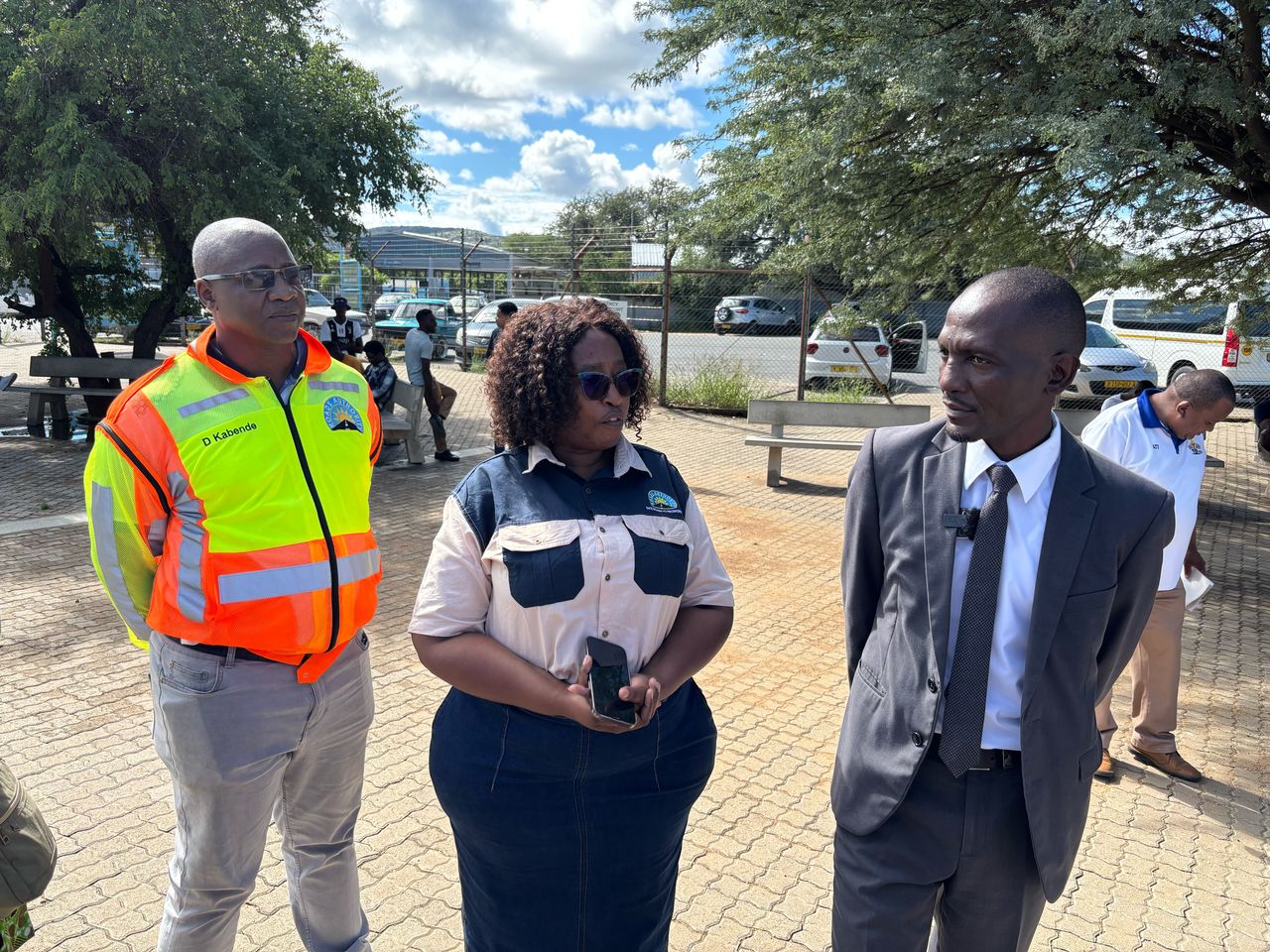ALLY Angula appears to have found herself in the right places at the right times. At least, that is the impression I got this week when I interviewed her about Leap Holdings, a company she and other partners formed last year. Leap is involved in the agro business, retail and manufacturing.
Angula’s destiny after leaving KPMG Namibia, where she was a senior partner, has followed a path of coincidentally meeting gifted people who are helping her realise her dreams of setting up a manufacturing venture in Namibia.
When I asked her about the challenges she has faced since leaving KPMG to enter the uncharted waters of the business world, Angula says KPMG taught her to face challenges and overcome them.
“You can’t say it is a smooth transition, it is a managed transition as we are going along,” she said.
The challenges are different though from those of the auditing and accounting world. Angula now has to do with fabric suppliers and how to deal with the first crop of potatoes expected to be harvested at the Leap farm in Tsumeb early next month.
From talking about the potatoes, we jump to another venture under Leap Holdings. With a seemly very patriotic name, My Republic will be Namibia’s first commercial clothing brand, Angula says.
My Republic will be launched in September and will operate from the Groove Mall in Windhoek. The mall is under construction and is set to become the biggest shopping centre in Namibia.
“We will be manufacturing here. The only thing that we will be importing is the fabric and the trims. We have an in-house designer. So the designs, cutting, and trimming will be done here in Namibia. We will be manufacturing in Witvlei.”
She says the fabric for the brand will be sourced from all corners of the world. Angula showed me some of the samples of the fabric for the My Republic brand.
POTATOES AND A CLOTHING BRAND?
At this point, the interview is becoming a spaghetti bowl. Potatoes and a clothing brand?
Angula puts things in context. She says the potatoes in the ground are meant to become an operation that generates cash flow. This money will be used to experiment with the growing of bamboo at the farm for about three to five years. At the end of this period, she says Leap will determine if bamboo can successfully be grown in Namibia.
Bamboo is the largest member of the grass family and is used as a food source, for building materials and as a versatile food source.
“We hope to use the bamboo in making our own fabrics. The potatoes are meant to fund the experimentation into bamboo, which will then feed into manufacturing and then retail,” she says.
So where is the capital for all these unique ideas coming from? Angula says part of the money is from Leap Holdings’ own financial resources while the other part is a loan from a commercial bank.
Leap tried to obtain a loan from Agribank for the potatoes venture but nothing came out of it, because, as she puts it, ‘Agribank has no sense of time’.
“Once you miss a planting window, that is it. You will have to wait for the next planting season,” she says about not having a fixed time framework of obtaining a loan from the bank.
Another setback with Agribank is that the bank does not accept the assets that they are financing as security, Angula says.
“If I go to a commercial bank for financing a tractor, that tractor is security as long as I have income to pay for it. Agribank does not accept the asset itself as security, which for me did not make sense. We did not want to be tied up for unnecessary conditions, so we went to a commercial bank,” she says.
She says a plan to obtain a loan from the Development Bank of Namibia for My Republic brand failed since Leap submitted a funding proposal at the end of last year.
“We have already sourced fabrics to make sure, we have one month’s supply in the shop. People first want to see that you are serious about what you are doing and if they can see, I am sure they will come on board,” she says.
FUNNY WAY
Angula says the ‘garment idea started in a funny way.’ After making up her mind that she wanted to venture into business, Angula enrolled to do a course in financing entrepreneur business at the London Business School. While in London, she met a ‘guy’, as she puts it, from Sri Lanka, whose family owns one of the biggest garment factories in that country. He invited Angula to Sri Lanka to visit the factory but she did not follow up the invitation when she returned to Namibia.
Coincidentally, when she went to London with her family for the Olympics 2012, she met the same Sri Lankan in the elevator of the hotel they were staying in.
He then invited her to attend a design festival in November 2012 in Sri Lanka, where she also visited his factory that employees 1200 people. Angula says the visit to, the capital Colombo, showed her that setting up a garment factory was not as complicated as she had thought.
Angula says a service agreement has been signed with an Ethiopian firm to help with the garment factory lay-out, and training of employees when production starts in Witvlei. The machinery is expected to arrive in June.
“Leap Holdings is excited. We think this country has lots of opportunities. We just need to stop having this copycat mentality. There is a lot that we can bring into the market. When you go abroad and you see a service or product that presents an opportunity, bring it here. Namibia is a mature market,” says Angula.
Stay informed with The Namibian – your source for credible journalism. Get in-depth reporting and opinions for
only N$85 a month. Invest in journalism, invest in democracy –
Subscribe Now!










